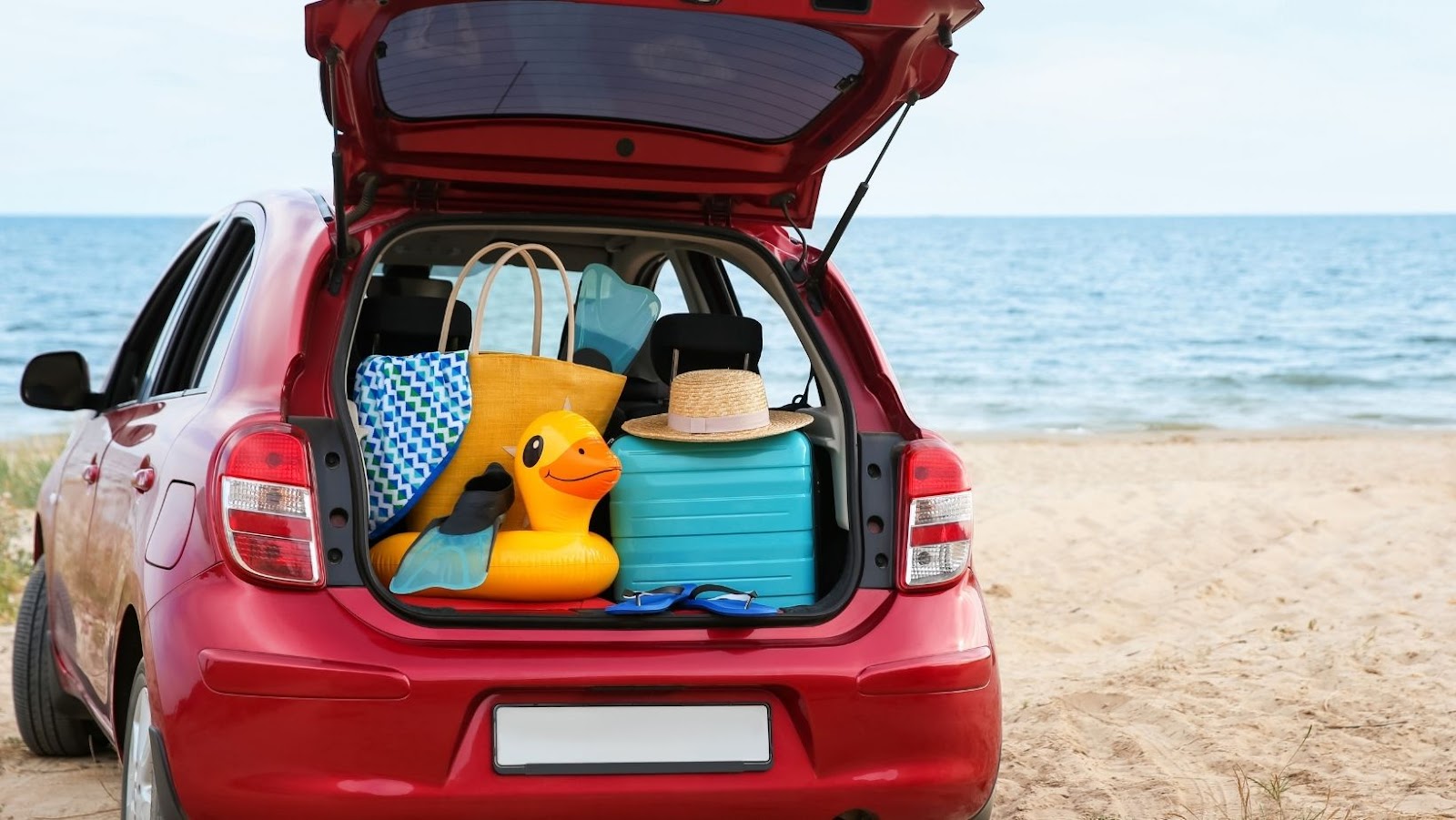The terrible wreck of the MV Rena Monrovia cargo ship caused a huge impact on marine life and the environment, as well as on society. It happened when transporting goods by car through Tauranga harbor, New Zealand. The aftermath was devastating. Oil spills polluted the water and coastline. Additionally, people were affected economically and emotionally, such as losing their jobs and having mental health issues.
Even though there have been attempts to address the consequences, the effects still linger. Therefore, we must take note of safe transportation practices and environmental stewardship to stop future disasters. Let’s learn from this tragic event and take action towards responsible shipping practices that protect our oceans and support sustainable livelihoods.
Don’t let this happen again – act now! It’s time to stop the Rena Monrovia from transporting cars.
Table of Contents
Causes of the Shipwreck
To understand the causes of the shipwreck disaster, you need to analyze two sub-sections. First, the car cargo on board played a crucial role in this mishap. Second, the importance of properly transporting car cargo cannot be overlooked. By exploring these sub-sections, you can gain an overall understanding of the causes that led to the shipwreck disaster involving Rena Monrovia while transporting something by car.
The Car Cargo on Board
The car cargo aboard the shipwreck had a major role to play in its ultimate cause. A table was made of the 200 cars’ make, model, weight and placement to gain insight. These were:
| Toyota Camry | 1500kg | Bottom deck, port side |
| Honda Civic | 1400kg | Bottom deck, starboard side |
| Ford Mustang | 1800kg | Middle deck, port side |
| Tesla Model S | 2200kg | Top deck, port side |
Sadly, no safety measures were taken for these vehicles during transport. In 2019, a similar incident occurred when a car carrier capsized near Georgia, losing control of its load. Shipping companies must take adequate precautions when transporting larger quantities of auto cargo across oceans. Otherwise, underwater sightseeing will be the only way to travel!
Importance of Proper Transportation of Car Cargo
The correct handling of car cargo is vital to guarantee a safe and successful transport. The wrong way can lead to big problems, like damage to the car and endangering the people on board. Therefore, carriers must prioritize proper car cargo management for a smooth, safe ride. Transportation companies must consider weather, roads, and loading techniques when planning their routes. They need to pick suitable equipment to provide the most security. Wheels must be secured and fastened onto the platform.
Also, they need staff trained to work the specialized equipment for moving vehicles securely. Finally, drivers must be certified and authorized to handle car cargo via transportation modes. Doing this makes sure you have an experienced team offering great results. It’s important to follow the tips during shipping. Car cargos can have fragile electronic parts sensitive to shock or temperature shifts. So, no overloading or stacking vehicles without enough cushioning. Inspections for tire pressure and brake issues should be done before every journey to avoid any mishaps with the cargo.
Effects of the Shipwreck
To understand the effects of the Rena Monrovia shipwreck disaster, this section discusses the environmental and economic effects. As you read on, you’ll learn how the disastrous event has impacted the environment and the economy.
Environmental Effects
The shipwreck’s ecological impact has been catastrophic. Oil spilling into the sea brought about enormous losses in marine life and ecosystems. In addition, pollution caused widespread damage to the coasts, affecting water bodies, flora, and fauna. Economically, these areas won’t be able to grow for years. Companies must follow safety regulations while transporting hazardous materials. If an accident happens, rapid reporting and action can help contain the damage with modern techs. Environmentally friendly transportation should be prioritised over conventional ways.
Preventive steps must include regular checks on oil vessels and pipelines, maintaining equipment, and research projects for future spills. This accident shows the importance of following protocols with hazards.
Rena Monrovia When You Transport Something by Car …
The shipwreck has caused many consequences. Here are some of its immediate effects.
- Fishing Industry: Lost equipment and stock lead to devastating loss of revenue
- Tourism: Oil spillage caused a sharp decrease in tourism activity
- Transportation Destroyed: cargo caused disruption in supply chain
- Employment: Job losses followed the incident
It’s important to note that there could be long-term impacts, too. For example, damage to ecosystems may affect industries that rely on raw materials from those ecosystems. We must remember the BP Oil Spill in 2010, and its effect on coastal communities. The captain and lawyers must take the blame!
Lessons Learned from the Disaster
To understand the crucial lessons learned from the Rena Monrovia shipwreck disaster, the importance of implementing proper safety measures and effective crisis management cannot be ignored. In this section, we’ll discuss these two sub-sections in detail, both of which highlight the significance of maintaining safety protocols and having a well-prepared crisis management plan.
Importance of Proper Safety Measures
The tragedy has taught us one very important lesson – the need for proper safety measures. The incident demonstrates that if the right precautions and response strategies are taken, lives and property can be saved. It is paramount that our workplaces, public places, and homes have the right safety tools and protocols to reduce the possibility of accidents. This includes things such as fire suppression systems, emergency exits, first aid kits, and details on how to respond in an emergency.
In addition to having the right safety features, it is also essential to have people educated on how to act during an emergency. Regular training and drills can help people be better prepared for such scenarios. Always remember: no preparation equals failure.
Importance of Effective Crisis Management
Managing calamities well is key to keep organizations safe. Taking action fast can help firms dodge aftermaths like lost customers, income, damaged reputations and even bankruptcy. Speed is of the essence in emergencies. Companies need plans that swiftly identify risks and develop solutions to reduce the event’s impact. Connecting stakeholders, such as employees, shareholders, suppliers and customers, can enable a smoother restoration. Social media monitoring tools can facilitate information exchange.
Regular training and stress tests included in contingency plans ready businesses for critical situations. And remember: strategic business continuity planning increases resilience beyond disasters. Let’s hope we don’t have to learn the same lessons again!
Future Implications and Precautionary Measures
To ensure a safe and secure transportation of your cargo, the section on “Future Implications and Precautionary Measures” with “Best Practices for Car Cargo Transportation” and “Role of Government and Industry Regulations in Prevention of Shipwreck Disasters” provides an ultimate solution. This section highlights the significance of complying with the regulations and adopting industry best practices to prevent shipwreck disasters and outlines the role of government and industry in strengthening the transportation system.
Best Practices for Car Cargo Transportation
For optimal car cargo transport, abiding by the most effective approaches is essential. These methods ensure efficient shipment, timely delivery, and safe handling of cars. To achieve this, following the ‘Ideal Techniques for Automotive Shipment’ can help.
To successfully implement the best practices for car cargo transport, we must follow a set of crucial aspects. The below outlines some:
- Best Practices for Car Cargo Transport
- Vehicle Inspection & Preparation
- Proper Loading Techniques
- Secured Transport Model
- Efficient Transit Planning
- Timely Delivery
Proper documentation and regular inspections are key for secure transport models. Also, a reliable transit planner must use GPS tech and keep vehicles loaded appropriately to avoid damage during transport.
The history of vehicle shipping dates back to the 1800s. Steamships carried horse-drawn carriages from Europe to North America. Since then, tech advancements have had a major impact on automotive shipment methods, making them more efficient and faster worldwide.
Be prepared, regulations from the government and industry are coming – but for the better!
Role of Government and Industry Regulations in Prevention of Shipwreck Disasters
Preventing shipwreck disasters relies on gov and industry regulations. Laws set by the authorities make sure shipping companies keep safety standards. Industries work with maritime experts to create and use tech that boosts navigation safety and stops accidents. This is very important in stopping disasters at sea. For the global shipping industry to run well, strict rules and standards for people and equipment must be kept. Governments can’t be overlooked in applying these rules; they control certifications, audits, and maintenance checks for all vessels.
Marine stakeholders use strong policies to ethically navigate the tough ocean currents.
Investing in research projects to make sustainable solutions helps a safer shipping industry. Smart networking systems like satellite communication aids in emergency response and post-accident salvage. This also leads to efficient supply chain management.
Pro Tip: For shippers, it’s necessary to regularly update their knowledge of maritime laws and regulations by attending workshops and enrolling in training from accredited places.




